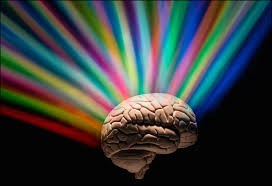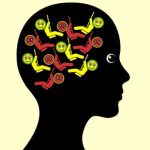Bipolar disorder is a mental health condition that can be debilitating to those who suffer from it and their loved ones. It’s not just about being moody, though. Bipolar disorder is a complex mental illness with many symptoms and degrees of severity. In this article, we’re going to discuss bipolar quiz: an assessment toolkit that can help you better understand the disorder, what signs to look for, how you might be feeling at various stages in your life, and more!
Contents
- 1 Understanding Bipolar Disorder
- 2 Decoding Bipolar Quiz
- 3 Types Of Bipolar Quiz
- 4 Questions To Ask Yourself Before Bipolar Quiz
- 5 Procedure For Taking Bipolar Quiz
- 6 Results And Interpretations
- 7 Bipolar Quiz Sample Questions
- 8 Handling The Bipolar Quiz Results
- 9 Bipolar FAQs
- 10 Conclusion
- 11 A Word From Therapy Mantra
Understanding Bipolar Disorder

Bipolar disorder is a mental health condition that causes extreme mood swings- from depression to mania and back again. Bipolar disorder is also referred to as manic depression because of the symptoms involved in this condition and a person’s mood state can swing from mania (extreme happiness) to depression (deep sadness).
Degrees Of Bipolar Disorder
Bipolar disorder has many different degrees, with more severe cases being classified into two types: bipolar I or II.
Bipolar I: This is the most severe form of bipolar disorder. In this case, a person will experience both mania and depression, but with different degrees of intensity in each stage.
Bipolar II: This is also considered to be a serious mental health condition where one cycles back and forth between hypomania (a less intense version of manic episodes) that doesn’t significantly impair daily functioning and major depression.
NOTE: A third type, cyclothymia, is less severe and can be thought of as a milder form of bipolar disorder.
Symptoms Of Bipolar Disorder

The signs and symptoms of bipolar disorder can vary greatly from person to person, but some commonalities are seen in most cases.
Mania
In addition to feeling happy or “high,” people with mania often have a lot of energy and can be very productive. They might also have a lot of grandiose thoughts, feel irritable or easily angered, and make poor decisions because of their impulsiveness.
Depression
Signs of depression include feeling sad, hopeless, helpless, worthless, and having no interest in things that used to bring joy. People with depression may also have problems with sleeping, eating, and concentrating. Additionally, they may feel like harming themselves or even think about suicide.
Decoding Bipolar Quiz
A bipolar quiz is an assessment toolkit that can help you better understand your symptoms, what kind of moods you might be experiencing at different points in your life, and how severe they might be. In one sense, the quiz is just a starting point. It can help you to better understand your symptoms and mood changes. While others may simply want more information about bipolar disorder in general.
Information I Want To Get From Bipolar Quiz
When taking a bipolar quiz, it’s important to think about what you hope to gain from the experience. Some questions you may want to ask yourself include:
- How well do I understand bipolar disorder and can I apply that understanding to my life?
- How much do I understand the various symptoms of bipolar disorder and how they manifest themselves in me?
- What is a typical day like for me, about mood swings?
- Are there any triggers or patterns to notice here?
- How else might I be able to explain these mood changes?
Who Should Take Bipolar Quiz
Anyone who is experiencing extreme changes in their mood, energy level, and/or overall wellbeing could benefit from taking a bipolar quiz. It’s also important to remember that people with depression symptoms can be misdiagnosed as having bipolar disorder so keep this in mind if you are concerned about taking a bipolar quiz.
The Time I Take Bipolar Quiz
There is no right or wrong time to take a bipolar quiz. Some people find that it helps them better understand their symptoms and mood changes. While others may simply want more information about bipolar disorder in general.
Rough Idea of Bipolar Quiz
When researching bipolar quizzes, you will likely come across several types of tests. These assessments can take many forms depending on the purpose for taking them (e.g., clinician-administered or self-report). For example:
- Questionnaires: A questionnaire is a series of questions that are typically answered by filling in the blanks or checking off boxes. They can be short or long, depending on the amount of information you want to gather.
- Scales: Scales are similar to questionnaires in that they present a series of questions. Instead of answering by filling in the blanks or checking boxes, however, you will rate your answers as strongly agree (e.g., Strongly Agree), agree (Agree), disagree (Disagree), and strongly disagree (Strongly Disagree).
- Interviews: An interview involves answering questions verbally either face-to-face with a clinician or over the phone.
Accuracy of Bipolar Quiz
While no bipolar quiz is one hundred percent accurate, they are a valuable tool to help you better understand your symptoms and get more insight into the impact of your condition. The best way to increase the accuracy of any test is by following all instructions carefully, including giving honest answers that reflect how you feel. As with other tests (e.g., physical exam and lab work), a bipolar quiz is more accurate when it is taken at the same time of day, in similar circumstances every time you take it.
Also, the accuracy of a bipolar quiz largely depends on the questions that are asked and the person taking them. It is important to remember that everyone experiences bipolar disorder differently, so there is no single “correct” answer to any question. However, by answering honestly and accurately, you can get a better sense of how your symptoms might be impacting your life.
Types Of Bipolar Quiz
Based on Duration
There are two main types of bipolar quizzes: short and extensive.
- The short type is composed of only a few dozen questions; the extensive one can include more than 100. The short type is best if you are looking for a quick assessment and answers.
- While the long one gives you greater insight into your condition over time with its results reflecting changes in your symptoms from week to week or month to month.
Nature Of Questions
There are several kinds of bipolar quizzes, including ones with questions about the following topics:
- Mood swings
- Manic episodes
- Depressive episodes
- Hypomania
- Impact of bipolar disorder on daily life
- Relationships
- Treatment history and preferences
NOTE: You can also find quizzes that are specific to certain age groups, such as adolescents or seniors. It’s important to find the quiz that is best suited for you, as this will help ensure that the results are as accurate as possible.
Questions To Ask Yourself Before Bipolar Quiz
Before taking a bipolar quiz, it’s important to ask yourself some key questions. This will help you better understand why you are taking the quiz and what you hope to gain from it. Some questions you may want to ask yourself include:
- What is my goal for taking this quiz?
- Do I have a good understanding of bipolar disorder?
- Do I understand my symptoms?
- How much do I want to know about bipolar disorder and how this might apply to me?
- Are there changes that need to be made in my life as a result of taking the quiz?
- How important are these changes, given what I’ve learned from the test results so far?
- What can I do to get more information about bipolar disorder?
Procedure For Taking Bipolar Quiz
Taking a bipolar quiz can be relatively simple and straightforward: all you have to do is answer a series of questions about your mood, energy level, and general wellbeing.
- When taking a bipolar quiz, it is important, to be honest with yourself about your answers. To get accurate feedback, you need to answer as honestly and accurately as possible.
- The first step is figuring out which type of bipolar quiz will suit your needs best: short or long? After this decision has been made, it’s time to start the actual test itself. While filling out a short bipolar quiz, it is important to answer all questions.
- For long bipolar quizzes, you can take them in sections if time is an issue. However, it is still important to answer all questions when taking the test.
- Once you have completed the quiz, be sure to review your results and interpretations carefully.
NOTE: If you have any questions after taking the bipolar quiz, be sure to consult with your healthcare provider. They can help explain your results in more detail and offer support and guidance moving forward. Since bipolar disorder is a complex mental illness, it is important to have a clear understanding of what the quiz results mean for you.
Results And Interpretations
After taking a bipolar quiz, the results are typically broken down into three types: short-term, long-term, and overall.
- Short-term results focus on how you feel about your symptoms for one week or so. They do not take into account any of your other moods as they only reflect what is happening at that given moment.
- Long-term results reflect how your symptoms have changed or progressed over time. This information can be helpful in terms of understanding the trajectory of your bipolar disorder and seeing if any new treatments are working.
- Overall results give you a general overview of how you scored on the quiz, including both short-term and long-term results.
If I Don’t Have Bipolar Disorder
If you don’t have bipolar disorder after taking a bipolar quiz, it’s important not to panic. This doesn’t mean that you are “crazy” or that something is wrong with you. It just means that your symptoms might be caused by something other than bipolar disorder. For example, you may have depression or anxiety instead of a mood disorder like bipolar. You should also consider the following questions:
- Are there any changes that need to be made in my life as a result?
- What can I do to get more information about these concerns and how they might apply to me specifically?
Bipolar Quiz Sample Questions

Let’s take a look at some sample questions from the quiz itself.
- How do your moods change throughout the day?
- Do you feel like your mood changes are normal for you?
- Do you ever feel like you’re out of control or that your moods are happening too quickly?
- How much do your mood swings affect your daily life (e.g., school, work, relationships)?
- When was the last time you felt really good about yourself and what were you doing at the time?
- Do you feel like your moods are causing problems in your relationships?
Handling The Bipolar Quiz Results
The results of a bipolar quiz can be difficult to handle, but it is important to remember that they are just one part of the overall picture. The goal is not to become obsessed with your score or dwell on the negative aspects. Rather, use them as a starting point for further discussion with your healthcare provider. They can help you better understand what your test results mean and help you explore options for treatment. They can also guide what to do next if your symptoms are severe enough that they impact your daily life significantly.
Bipolar FAQs
When should I seek help?
If any of these symptoms are affecting how you live your life significantly, it is important to seek help:
- Having severe mood swings more than two times a week
- Experiencing hallucinations or delusions
- Feeling like you want to hurt yourself or someone else
What is the difference between bipolar disorder and depression?
Bipolar disorder is a mental illness that causes extreme shifts in mood, from very high (mania) to very low (depression).
It is important to note that symptoms of depression can appear similar at times. Often people with bipolar disorder will say they experience both mania and depression, but the severity levels differ significantly.
This means it’s vital for you to discuss your symptoms thoroughly with a healthcare professional as soon as possible so you can get the right diagnosis and treatment.
What is the difference between bipolar disorder and anxiety?
Anxiety disorders are characterized by feelings of excessive worry, fear, or uneasiness.
Bipolar disorder causes extreme shifts in mood, but it is not characterized exclusively by symptoms of anxiety. Mania may include agitation, irritability, and restlessness, but anxiety disorders are characterized by an ongoing sense of fear or terror.
It’s important to discuss your symptoms with a healthcare professional as soon as possible so you can get the right diagnosis and treatment. As it is important to start the treatment for the complex mental illness to minimize the severity of symptoms.
Conclusion
A bipolar quiz can be a helpful tool for assessing whether you might have bipolar disorder. However, it is important to remember that the results are just one part of the overall picture. You should discuss your symptoms with a healthcare professional as soon as possible so you can get the right diagnosis and treatment.
If you’re still unsure after taking a bipolar quiz, you can also explore other methods for self-assessment. For example, a free online bipolar disorder test may help rule out or identify the condition. Then again, if your results are positive after completing an assessment tool like this one, it’s important to discuss them with your healthcare professional even sooner!
A Word From Therapy Mantra
Your mental health — Your psychological, emotional, and social well-being — has an impact on every aspect of your life. Positive mental health essentially allows you to effectively deal with life’s everyday challenges.
At TherapyMantra, we have a team of therapists who provide affordable online therapy to assist you with issues such as depression, anxiety, stress, workplace Issues, addiction, relationship, OCD, LGBTQ, and PTSD. You can book a free therapy or download our free Android or iOS app.


